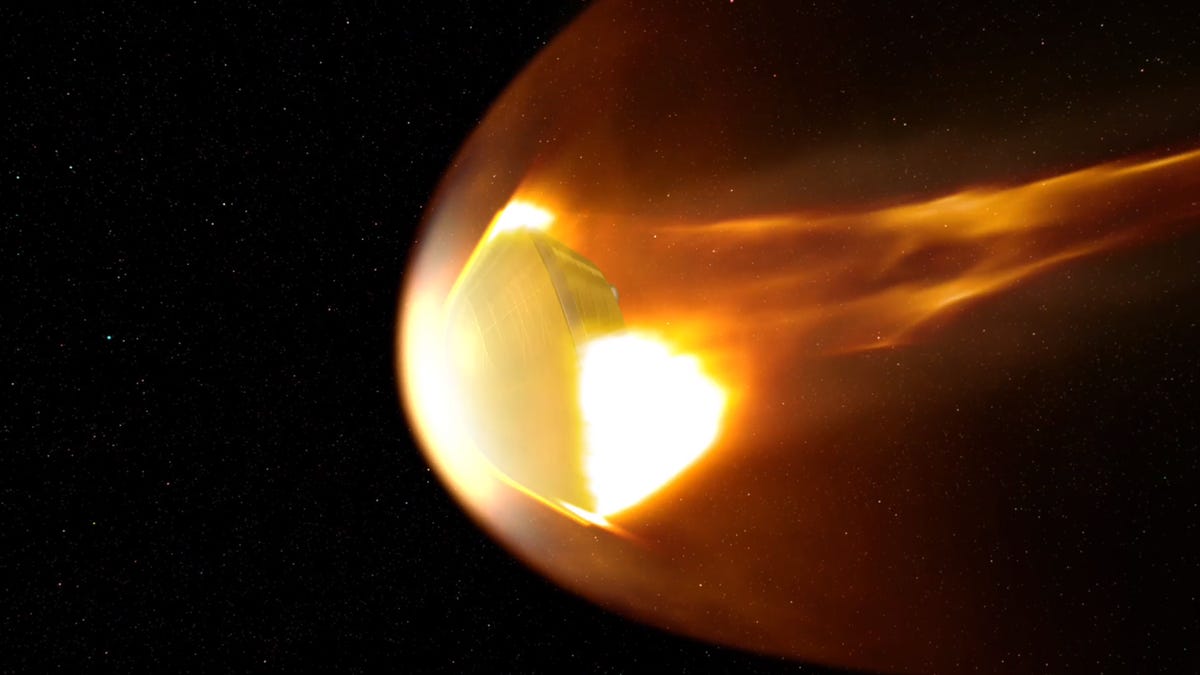Japan's Hayabusa2 asteroid sample: Rewatch the epic fireball return
The sample return capsule is set to light up the Australian skies on Saturday, the end of a six-year JAXA mission to asteroid Ryugu.

A capsule containing pristine asteroid samples will blaze a trail down to Earth on Saturday morning Pacific time.
Editor's note: The recovery mission has ended and samples have been transported back to a facility in South Australia. Click here to read about the success.
In the last two weeks, a few stunning fireballs have been captured exploding over the Earth, but none of them are as important as the one expected to blaze across the sky today. The Japan Aerospace Exploration Agency is gearing up to collect samples scooped from near-Earth asteroid Ryugu by the expertly engineered Hayabusa2 probe.
The spacecraft's sample collection capsule is set to land near Woomera in the Australian outback early Sunday morning local time -- Saturday in the US and Europe -- providing space watchers with a dazzling light show.
Want to find out how to watch the sample return mission live? We've got all you need to know below.
What's all the fuss about? Hayabusa2 launched in 2014 and rendezvoused with asteroid Ryugu in June, 2018. After shooting the asteroid with a bullet in 2019, the spacecraft was able to grab samples of subsurface material from the space rock -- potentially the first time a spacecraft has done so -- and store it in the capsule that will be returning to Earth over the weekend.
Until JAXA scientists and engineers get back to Japan, we won't know for certain just what's been captured, but it seems incredibly likely we will be able to peer inside an asteroid for the first time. The material trapped inside could tell us about the early solar system and explain how water was carried to the planet in its formative years.
JAXA will provide a livestream of the event from Mission Control. Streaming began at 9 a.m. PT (noon ET) on Saturday, Dec. 5. The broadcast is expected to last approximately 70 minutes, but may stretch to 90. That's a few seconds after the fireball is expected to appear and whether there will be vision from the ground as the spacecraft returns to Earth is currently uncertain.
"Given the nature of our operations with the minimum number of team members in Woomera, we cannot promise anything, but if any, it will be embedded in the livestream from Sagamihara, Japan," said Masaki Fujimoto, deputy director of the Institute of Space and Astronautical Science at JAXA.
That livestream is available for viewing below. There are currently upwards of 80 scientists and engineers from JAXA stationed in Woomera and the nearby outback town Coober Pedy ready to leap into action as Hayabusa2 Ubers its asteroid sample to Earth.
This page is being constantly updated leading up to launch.

